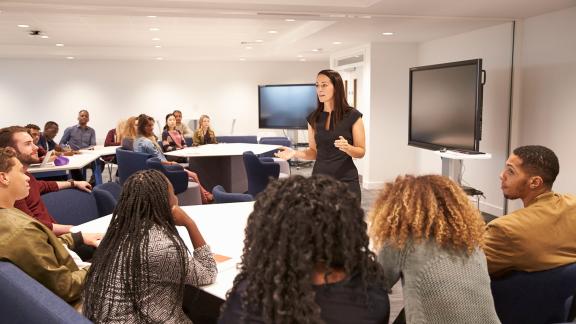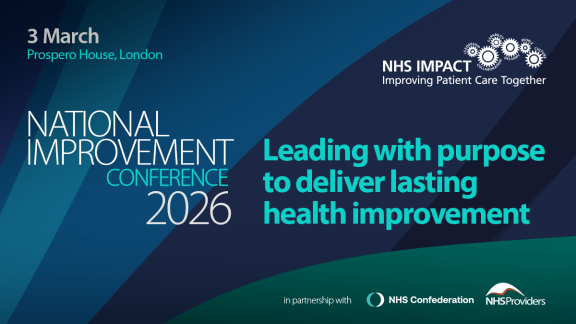Examples of clinical and care professional leadership in practice

Distributed and diverse leadership is a fundamental building block for all integrated care systems (ICSs). It can help shape, design, and support the way services are delivered for the future providing new opportunities for staff and local people. This can be most impactful at place and neighbourhood level.
The broadest range of clinical and care professionals need not only to be supported in their roles but fully integrated into decision-making, planning and service design.
"We cannot afford to not diversify our leadership. CCPL is an enabler. It’s cross cutting and it involves itself in every piece of work that we are doing. It is not an add on."
When leadership is fully inclusive and can be seen and heard at all layers of a system, patient outcomes improve, and health inequalities can be tackled effectively.
Clinical and care professional leadership (CCPL) as a principle should be embedded within all ICSs. It should not just be seen as a ‘nice to have’ but as something that underpins and sustains every aspect of health and care.
In 2021, NHS England published ICS implementation guidance on effective clinical and care professional leadership and set out two core expectations on what systems should be doing to implement CCPL:
- Each ICB is expected to agree a local framework and plan for clinical and care professional leadership with ICS partners and ensure this is promoted across the system.
- Individuals in clinical and/or care professional roles on the ICB board, including the nursing director or medical director, should ensure leaders from all clinical and care professions are involved and invested in the vision, purpose and work of the ICS.
Alongside the two core expectations, the guidance sets out five core principles of what ‘good’ CCPL might look like in an ICS. The principles in full, are:
- Ensure that the full range of clinical and professional leaders from diverse backgrounds are integrated into system decision-making at all levels, supporting this with a flow of communications and opportunities for dialogue.
- Nurture a culture that systematically embraces shared learning, supporting clinical and care professional leaders to collaborate and innovate with a wide range of partners, including patients and local communities.
- Support clinical and care professional leaders throughout the system to be involved and invested in ICS planning and delivery, with appropriate protected time, support and infrastructure to carry out this work.
- Create a support offer for clinical and care professional leaders at all levels of the system, one which enables them to learn and develop alongside non-clinical leaders (eg managers and other non-clinical professionals in local government and the VCSE sector), and provides training and development opportunities that recognise the different kind of leadership skills required when working effectively across organisational and professional boundaries and at the different levels of the system (particularly at place).
- Adopt a transparent approach to identifying and recruiting leaders which promotes equity of opportunity and creates a professionally and demographically diverse talent pipeline that reflects the community served and ensures that appointments are based on ability and skillset to perform the intended function.
Read how these three systems are applying the principles of CCPL to improve services across their areas and provide better experiences for their people and patients.
Useful links
Useful resources: Clinical and Care Professional Leadership
NHS England podcast: Clinical and Care Professional Leadership – the Story Of Why?
NHS England CCPL Framework: Clinical Leadership – a Framework For Action
Case studies: Clinical leadership case studies



